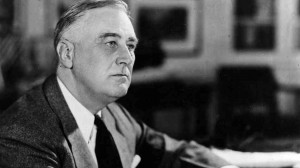
The U.S. and the speck in a neighbor’s eye
Ileana Ros-Lehtinen, a Cuban-American representative (R-Fla.), surprised many when she questioned the justice system in the U.S., saying that it was “extremely disappointing” that the courts had released one of the five Cuban agents after he served his prison term.

She doesn’t say what else the courts could have done. Maybe an alternative would have been to send him to the U.S. military base at Guantánamo, where he would have no legal rights or lawyers who demand those rights, and where he would have no access to a judicial process.
It would not have been very diplomatic to do that on the same week that Washington published its list of countries that violate human rights. Like every other year, the name of Cuba is there, but the list doesn’t mention Guantánamo, even though the largest number of political prisoners is concentrated there.
Secretary of State Kerry didn’t say anything, either, although his president opposes the existence of that prison camp and promised to shut it down during his first year in office, a deadline that expired a long time ago.
The violations of human rights by some don’t justify the violations that others commit, but it seems mind-boggling that the country that operates the world’s most notorious prison (in terms of no rights for the detainees) makes up a worldwide list of violators and doesn’t include itself on it.
There is more. Beijing has published a report on human rights in which the U.S. does appear, accused of “having perpetrated 376 attacks with drones (unmanned aircraft) in Pakistan and Yemen, killing 926 people, most of them civilians, several children among them.”
Apparently it’s easier to see the speck in a neighbor’s eye than the beam in one’s eye. The beam is also unseen in a friend’s eye because the governments most vehemently denounced by Washington are its “enemies.” The “friendly” violators are barely mentioned.

Let’s not forget that it was an American official who said that the U.S. should protect a “son of a bitch” so long as he is “OUR son of a bitch.” That’s the highest expression of the double standard with which Washington measures the international community and its lowest contribution to the struggle for human rights in the world.
[Translator’s Note: The quotation is attributed to President Franklin D. Roosevelt, speaking about Nicaraguan President Anastasio Somoza in 1939.]
Now things get complicated because the Russian defense minister announced that his government is negotiating with Cuba the possibility of establishing military bases on the island. And just so that no one should doubt Moscow’s resolve, the following day a warship of the Russian Navy docked in Havana.
The students at the University of Computer Sciences (UCI) might start to worry if the Russians decide to reclaim their campus, which in the past housed the Soviet “Lourdes Base,” used to monitor communications from the United States.
It will be hard for Washington to protest against the alleged arrival of Russian soldiers on Cuban soil, when the U.S. maintains a base on the island and wiretaps the communications of other world governments, including its European and Latin American allies.
Things have gotten so bad that the European Union and Brazil have agreed to lay an intercontinental underwater cable to which the U.S. will have no access. Thus, they will keep Washington from trying again to spy into the official communications of other countries.
Some analysts are wondering if a new Cold War will reappear, and nobody knows how all this will fit into the efforts of the Community of Latin American and Caribbean Countries (CELAC) to turn the region in to a Zone of Peace.
For a long time now, Latin America has been free of nuclear armaments. This year, the CELAC countries decided that all conflicts must be solved peacefully and in the future they might shut down all foreign military bases to avoid getting in the middle of other nations’ wars.
In the case of Cuba, if Washington acceded to return the Naval Base at Guantánamo, it would have the moral authority needed to ask that Havana not permit the installation of military units from other powers on its soil.
Thus would the dreams of both presidents come true simultaneously. The military occupation of Guantánamo would end, as Raúl Castro always demanded, and Barack Obama would fulfill his promise to eliminate the prison that brought so much criticism upon the United States.
(From the blog Cartas Desde Cuba. Translation to English by Progreso Weekly.)

